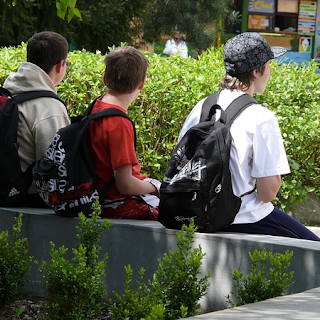New figures from leading mental health app Wysa show that the children and young people’s UK mental health crisis is worse than estimated. Over 1 in 3 13-17 year olds surveyed indicate symptoms of depression or anxiety that warrant investigation – and 82% self report a range of mental health issues such as anxiety (49% - rising to 63% of females), trouble sleeping (21%), dislike of image (26%), fear of socialising (29%) and other concerns. Half are worried about their parents’ money, showing influence of news agenda and the cost of living crisis on teenagers’ mental health.
But most worryingly according to the research, young people aren’t getting the help that they need. More than half (55%) who scored 3 or more on GAD2 and PHQ2 screening questionnaires for anxiety and depression haven’t spoken to a relevant professional about it.
Stigma and lack of knowledge
Their reason is embarrassment (43%) or that they don’t recognise they need help (41%) - stigma still prevails, and education about what is normal needs to happen. We need to normalise talking about mental health, and provide the resources and education around what to do when struggling or faced with difficulties. Although there has been extra focus and investment into supporting people to understand and identify signs of mental ill health, it’s just not landing with young people.
And 1 in 6 (17%) don’t know who to speak to, which rises to a quarter (23%) of 13-15 year olds. Having a mental health nurse in school, or posters up about therapists only work if people are shown how to access them, and guided to getting support.
Lack of accessibility
Part of the reason for this is accessibility at the times that young people need help. Nearly half (49%) experience mental health worries before school and a quarter (27%) just before bed – yet most current solutions are available during school hours. A third (35%) say that the support available is not at the right times for them.
When faced with challenges half of young people would speak to parents (53%), and a similar number to friends (46%). But ahead of Child and Adolescent Mental Health Service (CAMHS) services (25%) and teachers (21%) is TikTok (33%). Teenagers are using their phones and social media to access mental health support, which may not be accurate or regulated.
Our experience
We've certainly found some of this research to be true for our son. Anthony was already registered with CAMHS and under the supervision of clinical psychologist when his mental health took a turn for the worse. The journey to and from school, changing lessons and again at bedtime were his worse parts of the day. He spoke to us about it and after looking into the some mental health apps he said he'd prefer to speak to a person just like Sam did on 'Atypcial' a show he liked watching at the time. He found it very relatable.
We've certainly found some of this research to be true for our son. Anthony was already registered with CAMHS and under the supervision of clinical psychologist when his mental health took a turn for the worse. The journey to and from school, changing lessons and again at bedtime were his worse parts of the day. He spoke to us about it and after looking into the some mental health apps he said he'd prefer to speak to a person just like Sam did on 'Atypcial' a show he liked watching at the time. He found it very relatable.
We were fortunate enough to be able to get in touch with a local charity called Skylarks who worked with Off the Record, a local therapy service and were able to arrange within about 6 weeks for Anthony to attend speaking therapy sessions. We also did other things like getting noise cancelling headphones and clothing that made Anthony feel safe outside the house.
We attended a routine appointment with CAMHS where Anthony spoke of his difficulties and we said about what we had managed to organise. His clinical psychologist was relieved when we said we'd managed to arrange some talking therapy because, "you would be waiting a long time" before it could be accessed through the NHS. This was disturbing as Anthony was already registered with CAMHS and shows how difficult this could be for someone who had not.
Anthony told us he looked for answers on TikTok. Some of it was helpful and some not. The information he was getting was definitely unregulated and we were lucky enough that he talked to us about what he was seeing. I still find it troubling, some of what was being suggested online.
Anthony is doing better at the moment. He stopped his talking therapy a little while ago and is back out doing things he enjoys. But we still ask him every day how his day has gone and how he is feeling. I'm not sure how this post should end, perhaps as it's ongoing. I'm just happy he is happy at the moment and grateful that he's not struggled to access help in the way many others have.




No comments:
Post a Comment
I read all your comments and appreciate you sharing your thoughts with me and our readers. I welcome any feedback on my posts and you can always contact me directly. Thank you.